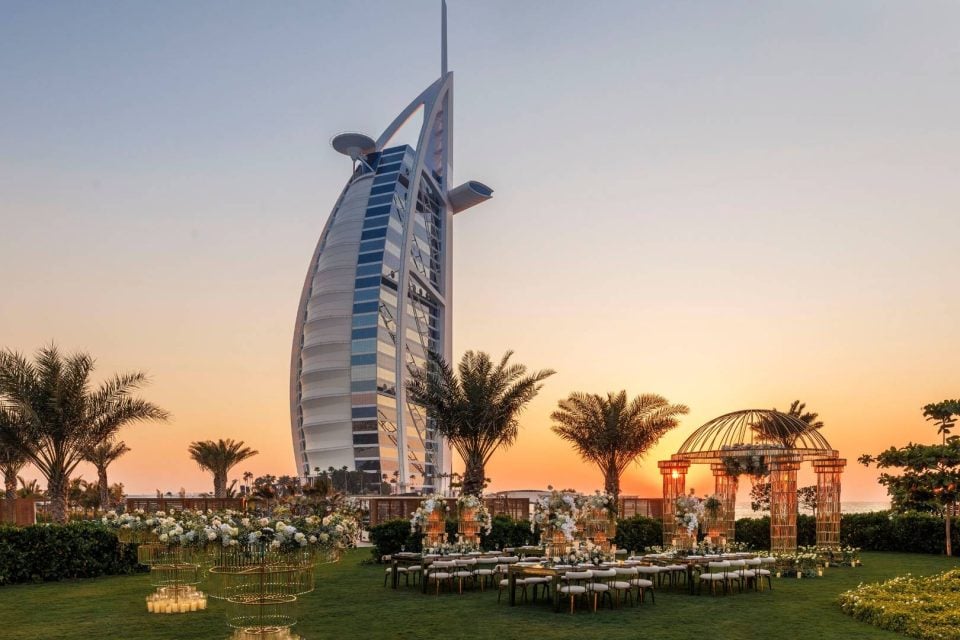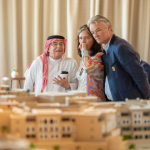The Meetings, Incentives, Conferences, and Exhibitions (MICE) sector is not just a revenue driver for hotels, it’s a fast-growing industry reshaping global hospitality. This is particularly evident in the Middle East, with the UAE leading the region, capturing 50% of its total MICE market.
As the region’s MICE tourism market is expected to reach $8.58 billion (UAE) and $4.70 billion (Saudi Arabia), respectively, let’s see how MENA hotels are meeting this opportunity and using it as a competitive advantage.
Finding their appeal
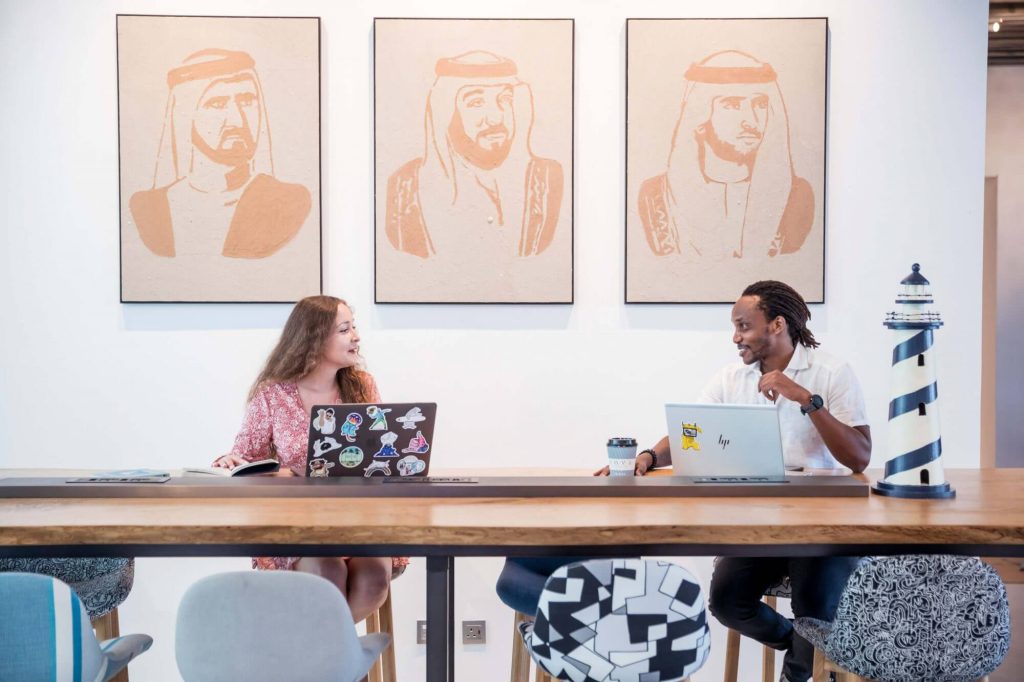
Efficiency through direct bookings
Simplified booking processes have become essential for event planners, and hotels are stepping up with direct booking systems that streamline the experience. Rove Hotels, for example, has implemented an online direct booking channel that allows planners to easily reserve spaces, make requests, and incorporate hybrid event features.
Providing venue flexibility
Flexibility in venue selection is another critical focus for hotels catering to the MICE sector. Properties with extensive room inventories and versatile spaces are better equipped to host events of varying sizes, from intimate board meetings to conferences with thousands of attendees.
For example, large-scale resorts in the Middle East like JA Resorts & Hotels often feature scenic outdoor venues alongside traditional conference rooms, making it possible to host creative events like beachfront dinners or team-building retreats in mountain settings. This flexibility ensures that MICE clients can choose the right venue for their specific needs while accommodating unique preferences like outdoor seating, natural backdrops, or expansive indoor exhibition setups.
“At JA The Resort, one of the largest resorts in the region, we offer a substantial number of rooms, perfect for accommodating both large-scale events and intimate gatherings. JA Hatta Fort Hotel, Dubai’s only mountain resort, provides a breathtaking setting for outdoor events. Similarly, JA The Resort offers versatile venues amidst natural landscapes, from scenic beaches to the Al Hajar Mountains, accommodating up to 1,800 guests for large-scale gatherings.” – Frida Audi, Group Director of Sales, JA Resorts & Hotels
Enhanced experiences through activities
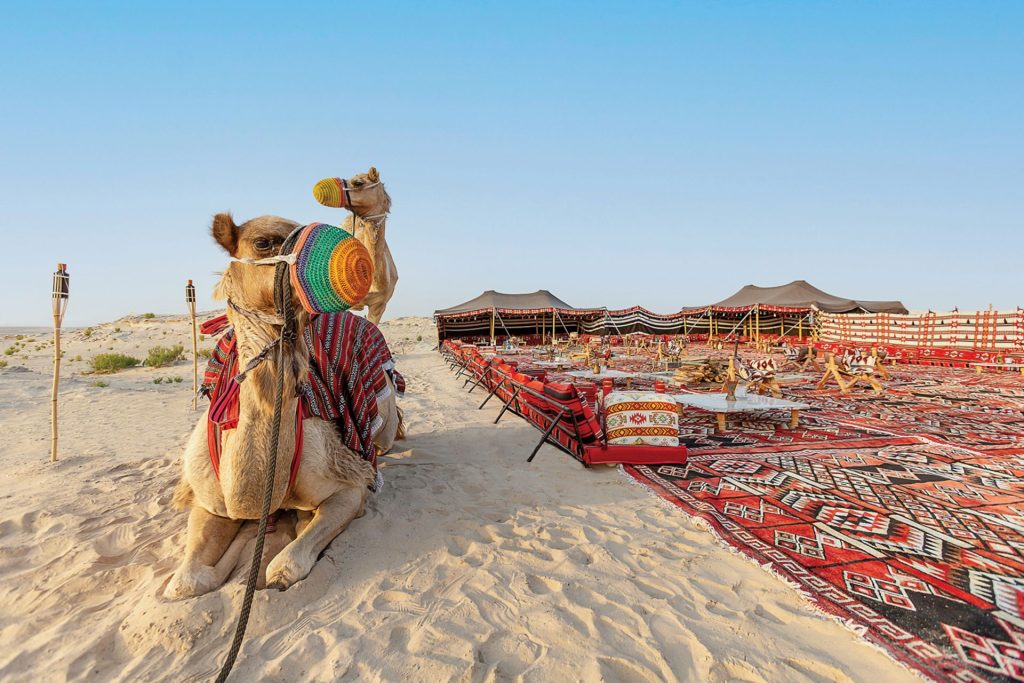
Personalised experiences have become a hallmark of successful MICE events. Hotels are increasingly offering curated activities designed to foster team-building, collaboration, and relaxation. Properties with extensive activity options might include adventure sports, wellness workshops, or cultural experiences tailored to the group’s objectives. The Jumeirah Group, for example, offer desert adventure team building at Jumeirah Al Wathba, while the Saadiyat Island Resort have more eco-conscious options.
Catering to the luxury market
For high-end incentive events or executive meetings, luxury properties offer unparalleled exclusivity and bespoke experiences. In Qatar, for example, The Ned, Doha have capitalised on their unique heritage by creating private members-only clubs and integrating local traditions into their luxury offerings.
These spaces appeal to executives seeking a blend of prestige and cultural authenticity, reinforcing the venue’s role in delivering a world-class experience. This trend reflects a broader movement toward exclusivity, with venues providing personalised service and high-end amenities to attract top-tier clients.
“The brand itself plays a significant role in setting us apart. As the first hotel in Doha to feature a prestigious international members-only club, The Ned Doha builds on the legacy of The Ned London and Soho House, incorporating distinctive elements of Qatari hospitality.” – Karyna Vashchanka, Head of Events, The Ned, Doha
Drawing on history and culture
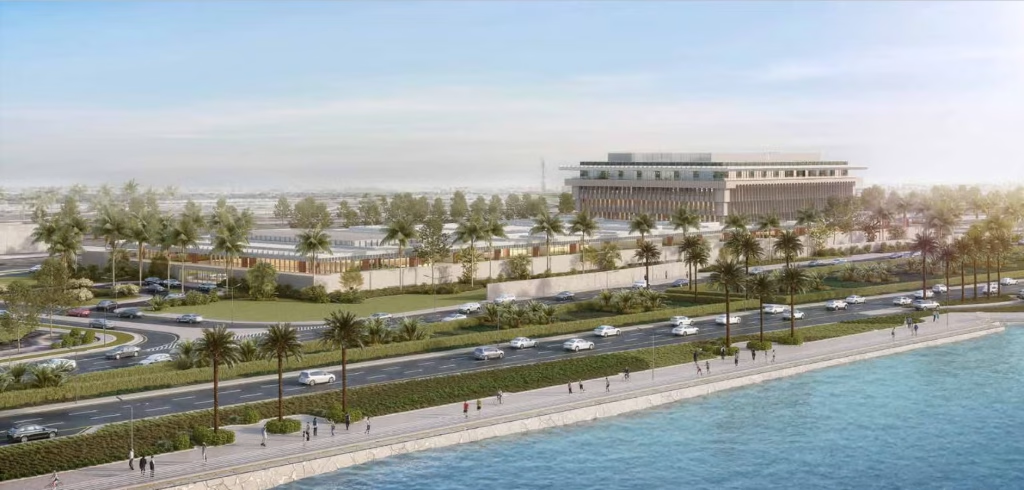
Properties with cultural or historical significance have a unique advantage in the MICE market, which MENA hotels can capitalise on. Hotels located in repurposed heritage buildings, for example, offer a distinct setting that blends tradition with modern functionality. These venues often feature design elements like original architecture or culturally inspired interiors, which enhance the ambience and lend character to events.
Some venues also increase their attraction due to their location near iconic landmarks, such as palaces, museums, or historic marketplaces. The Ned, Doha enjoys a prime spot near the Royal Palace and Souq Waqif on the Corniche, allowing organisers to incorporate cultural experiences into the agenda. Event spaces with features like private entrances, spacious terraces, and panoramic views further elevate the appeal for planners seeking memorable, meaningful settings.
Leveraging technology
Hotels are embracing technology to redefine the MICE experience, making events more engaging and accessible than ever. On top of advanced audiovisual (AV) setups, many venues are taking it a step further by offering dedicated internet bandwidth for virtual events to ensure uninterrupted experiences. Innovative spaces and specialist features, such as high-resolution screens, integrated sound systems, and on-site technical support, also ensure the smooth execution of events and set the venue apart.
“To accommodate modern workstyles, we provide coworking spaces and virtual meeting pods in public areas across all our hotels, offering event attendees additional spaces to collaborate and connect efficiently. We’ve also developed unique spaces like the Rove Podcast Studio, one of our most popular event spaces, and a photo and videography studio in collaboration with Nikon. These additions enhance our inventory and versatility as a venue.” – Sam Cooray, Director of Sales, Rove Hotels
Trends in MICE bookings for MENA hotels
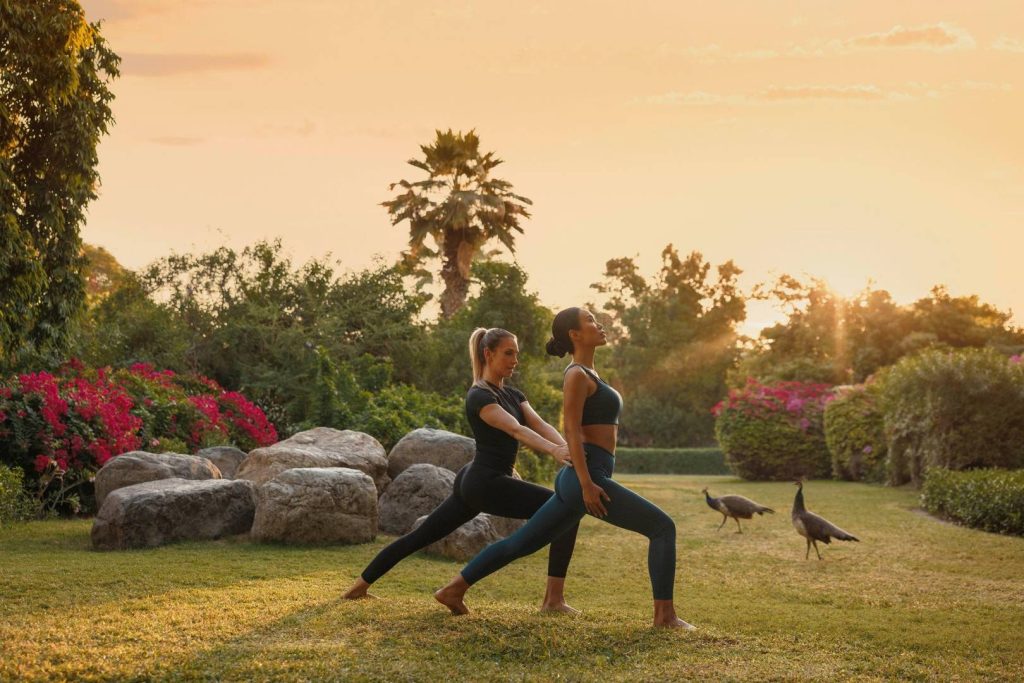
As the sector evolves quickly to appeal to consumer preferences, hotels must shift in response. Here are the latest trends shaping the MICE industry in MENA right now.
Corporate wellness on the rise
Corporate wellness is another trend gaining traction, with many organisations prioritising team-building and employee engagement activities. From wellness workshops to adventure-based retreats, MICE events are evolving to include experiences that emphasise physical and mental well-being alongside business objectives. This shift reflects a broader emphasis on employee satisfaction and productivity in the workplace.
Hybrid is here to stay
One of the most prominent trends in the MICE sector is the increasing demand for hybrid events. These events combine physical and virtual options, offering flexibility and inclusivity by allowing participants to connect from anywhere in the world. This approach not only broadens accessibility but also enables organisations to cater to diverse audiences while reducing travel-related costs and carbon footprints.
Investing in advanced AV and communication technology to support a seamless hybrid experience is no longer a nice to have, it’s essential.
Sustainability is a priority
Sustainability has emerged as a key priority for clients booking MICE events. Event organisers are increasingly seeking venues that incorporate eco-friendly practices such as energy-efficient operations, waste reduction initiatives, and sustainable catering options. Hotels that align with these values are positioning themselves as leaders in the green event space, and this is converting to bookings.
Flexibility and adaptability is a top booking factor

The pandemic has fundamentally changed how clients approach event planning, with flexibility becoming a key consideration when it comes to the booking decision. Hotels are responding with customisable packages and booking policies that include flexible cancellation options, ensuring clients can adapt to changing circumstances.
Health and safety protocols remain an integral part of MICE bookings, with venues offering robust measures to ensure a safe environment for attendees. This approach caters to post-pandemic sensitivities while enhancing client confidence.
“Post-pandemic, we’ve seen an increased demand for flexible booking policies, robust health and safety protocols, and a shift towards experiential offerings that foster meaningful engagement.” – Frida Audi, Group Director of Sales, JA Resorts & Hotels
Incentive travel and experiential offerings
Incentive travel is seeing a resurgence, with companies focusing on unique experiences to motivate and reward employees. This trend often involves selecting destinations that provide cultural or adventurous activities in addition to luxury accommodation. MENA hotels are best placed to offer this by supporting their existing services with curated experiences such as desert safaris, historical site visits, and culinary tours.
The demand for immersive, experiential events is also on the rise. Organisations are moving beyond conventional meeting spaces, seeking venues that offer a blend of functionality and inspiration. Hotels with unique locations, heritage buildings, or innovative design elements are particularly well-positioned to attract clients looking for novelty and memorable settings.
“With nearly a decade of experience in this market, it’s evident that clients are increasingly seeking novelty—new players that provide a mix of exceptional service, compelling offerings, and flexible MICE facilities” – Karyna Vashchanka, Head of Events, The Ned, Doha
The return of live events
As confidence in large gatherings grows, live events are making a comeback. Cities like Dubai, with its world-class event infrastructure and reputation as a global tourism hub, are experiencing a surge in bookings from the live events industry. Major regional and global events such as COP28, Global Titans, and mega festivals are driving this trend, highlighting the appeal of destinations that combine strong logistical support with vibrant cultural experiences.
Sustainability in MICE: A growing priority
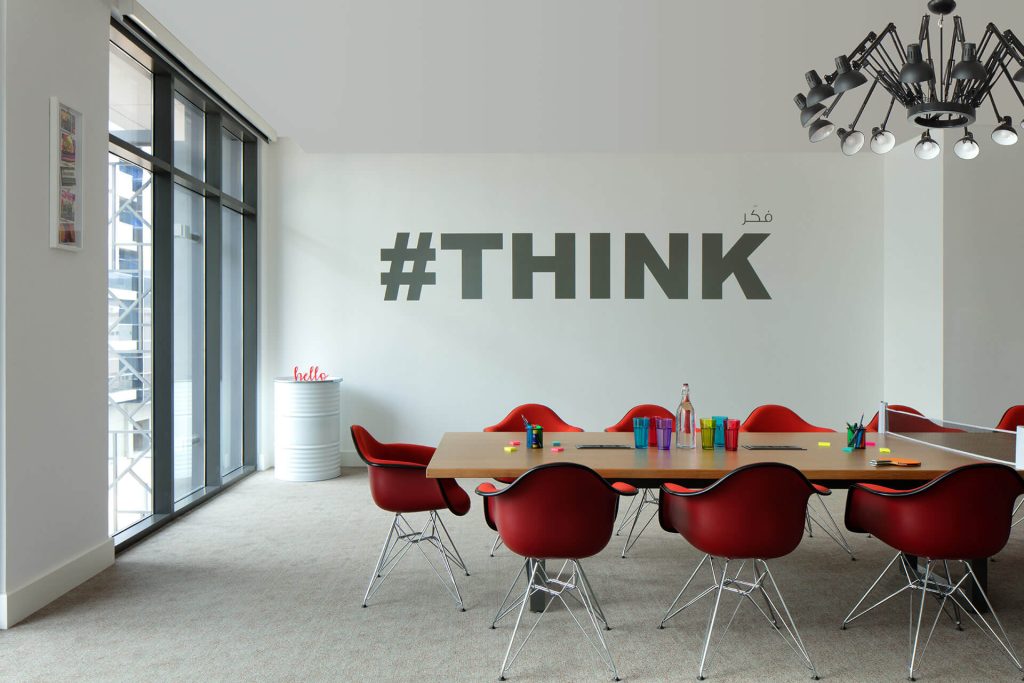
Sustainability has become a central focus, with clients increasingly demanding eco-friendly practices from hotels. In response, many properties are adopting innovative strategies to reduce their environmental impact without affecting the experience.
Green meeting practices
Hotels are adopting waste reduction strategies such as digital tools to replace paper-heavy processes and comprehensive recycling programs. Green meeting packages are increasingly popular, featuring sustainable catering with locally sourced and organic ingredients. Single-use plastics are being phased out in favour of refillable glass bottles and biodegradable alternatives.
“All Rove Hotels are Green Key certified, a prestigious ‘green’ label awarded to only a select number of hotels worldwide, underscoring our commitment to sustainable hospitality. Additionally, as a member of the Sustainable Hospitality Alliance, we collaborate with global leaders to promote responsible practices across the industry. By prioritising these sustainable practices, Rove Hotels ensures that our MICE events are not only successful but also environmentally responsible.” – Sam Cooray, Director of Sales, Rove Hotels
Energy efficiency
Energy-efficient infrastructure, including LED lighting, solar panels, and energy-saving HVAC systems, is becoming standard in MICE venues. These measures significantly reduce the carbon footprint of events.
“We prioritise locally sourced produce to support the community and minimize environmental impact. Additionally, we encourage clients to host green meetings by offering sustainable event options that align with their corporate social responsibility goals.” – Frida Audi, Group Director of Sales, JA Resorts & Hotels
Also read: How MENA’s travel industry is embracing sustainability
Appealing to an international market: 3 tips for success
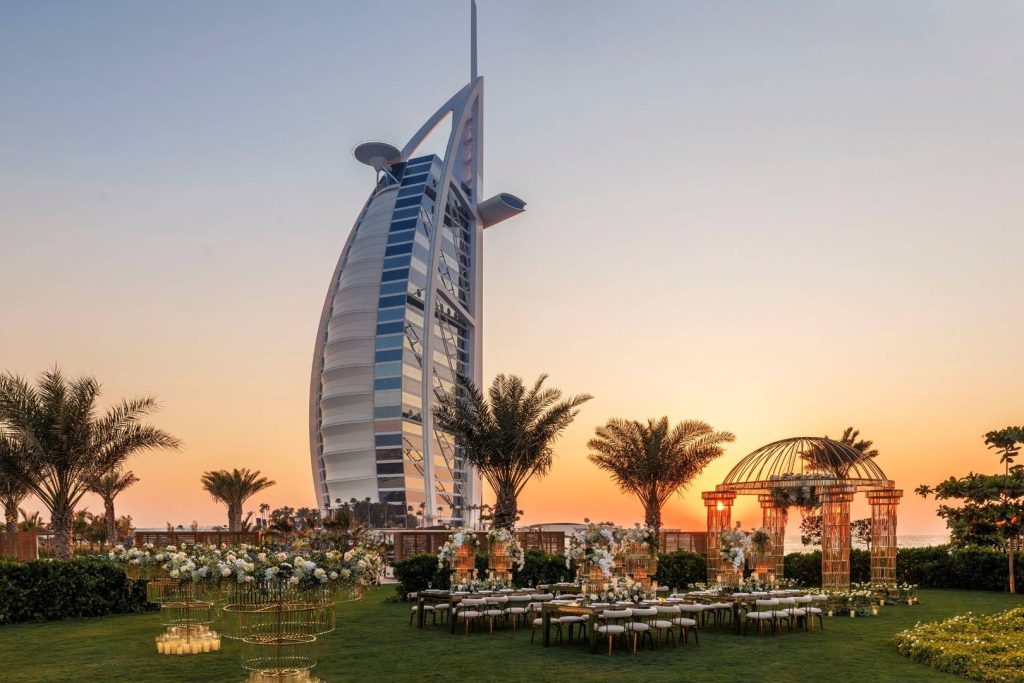
The MICE sector thrives on global connectivity, and hotels looking to attract international clients must strategically position themselves to meet diverse needs. Here are three key strategies that hotels in major destinations like the UAE, Qatar, and Saudi Arabia are using to appeal to the international market.
1. Emphasise accessibility and strategic locations
Global accessibility is a major draw for international MICE clients. Cities like Dubai have established themselves as global hubs, with world-class airports and infrastructure that make travel seamless.
Hotels strategically located near business districts, cultural landmarks, and entertainment venues amplify this appeal by offering convenience and a well-rounded experience. For instance, properties in Dubai often highlight their proximity to iconic attractions and business hubs to capture the interest of global event organisers.
2. Global event marketing equals a global audience
Participating in international trade shows and events like IMEX and IBTM allows hotels to promote their venues and services directly to global audiences. Collaboration with local tourism boards and organisations, such as Dubai’s Department of Economy and Tourism (DET) or Visit Qatar, further strengthens their presence on the global stage. These events are opportunities to showcase success stories, innovative offerings, and the unique appeal of destinations and resorts.
3. Be prepared to customise
International clients value tailored experiences, and the hotels that stand out are those offering customised solutions that align with their needs. Every event is different, and being able to accommodate large global audiences by making adjustments will win over. From high-tech conference setups to exclusive outdoor catering and curated team-building activities, by refining their services to cater to cultural and corporate expectations, hotels will solidify their appeal to global clients.
What will the MICE sector in MENA look like in 3-5 years?
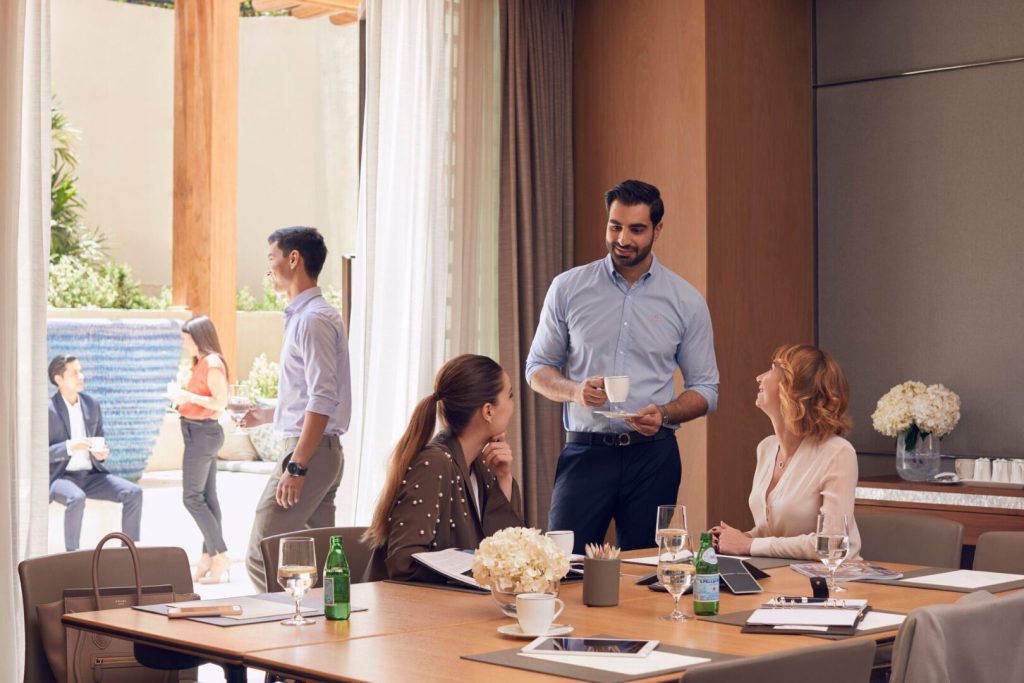
Here’s a look at key predictions for the industry’s future.
1. Continued growth in the Middle East
The Middle East, particularly the GCC countries, is expected to solidify its position as a global leader in the MICE industry. Dubai, Qatar, and Saudi Arabia are leveraging their strategic locations, premium infrastructure, and ability to deliver high-value services at competitive rates compared to traditional markets like Europe and North America. With ongoing investments in cutting-edge conference centres and luxury hotels, the region is becoming an irresistible destination for international events.
Also read: UAE driving MICE growth in the Middle East
2. Technology-driven innovation
Technology will play an increasingly critical role in shaping the future of the MICE industry. The growing reliance on virtual participation and innovative event formats highlights the importance of staying ahead in tech adoption. Hotels and venues investing in advanced AV setups, high-speed connectivity, and hybrid meeting solutions to cater to evolving client needs will lead the way.
Also read: Boosting hotel revenue through AI in the Middle East
3. A focus on staff development and service
To meet increasing demand, hotels are expanding meeting spaces and upgrading infrastructure. But it’s more than just increasing capacity. Staff training to ensure teams are equipped to deliver innovative solutions in a rapidly changing and highly technical environment will be key for high service quality. Training in technology, sustainability, and customer service will remain central to maintaining these high standards.
Overall, hotels are redefining their approach to the MICE sector by embracing technological innovation, flexible venues, personalised experiences, luxury offerings, and cultural significance. These trends reflect a deeper understanding of what event organisers and attendees value most; convenience, creativity, and meaningful connections. This evolution positions the hospitality sector in MENA as an indispensable partner in the success of modern events.

